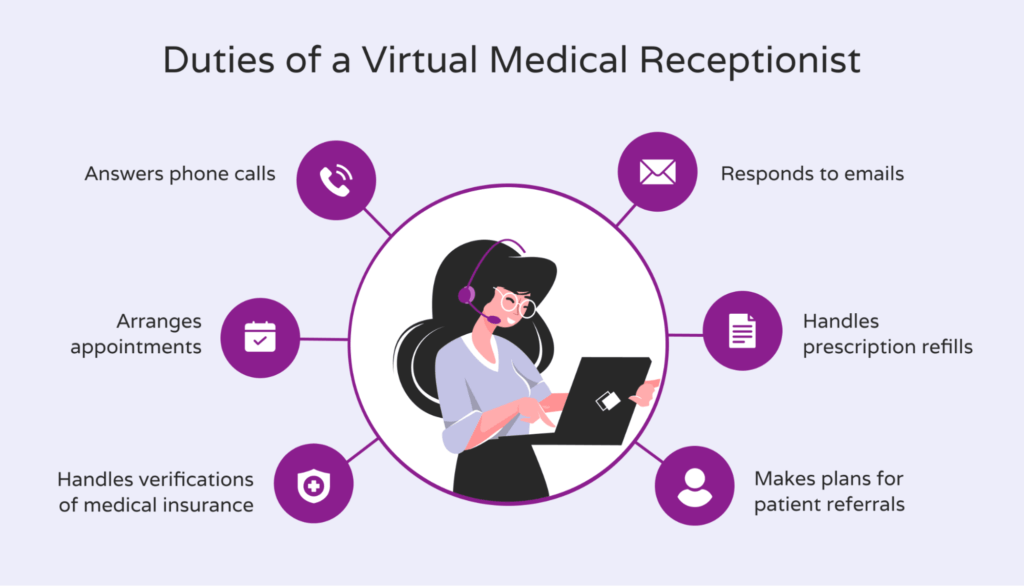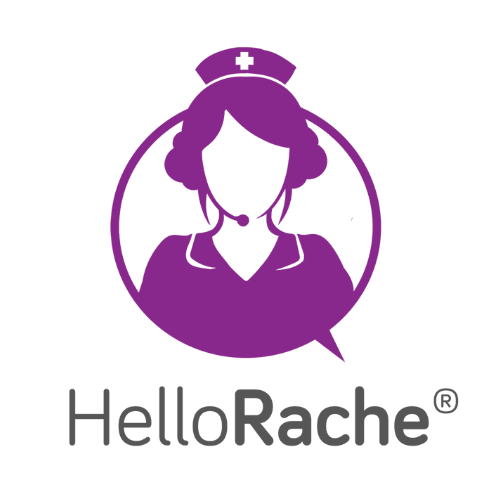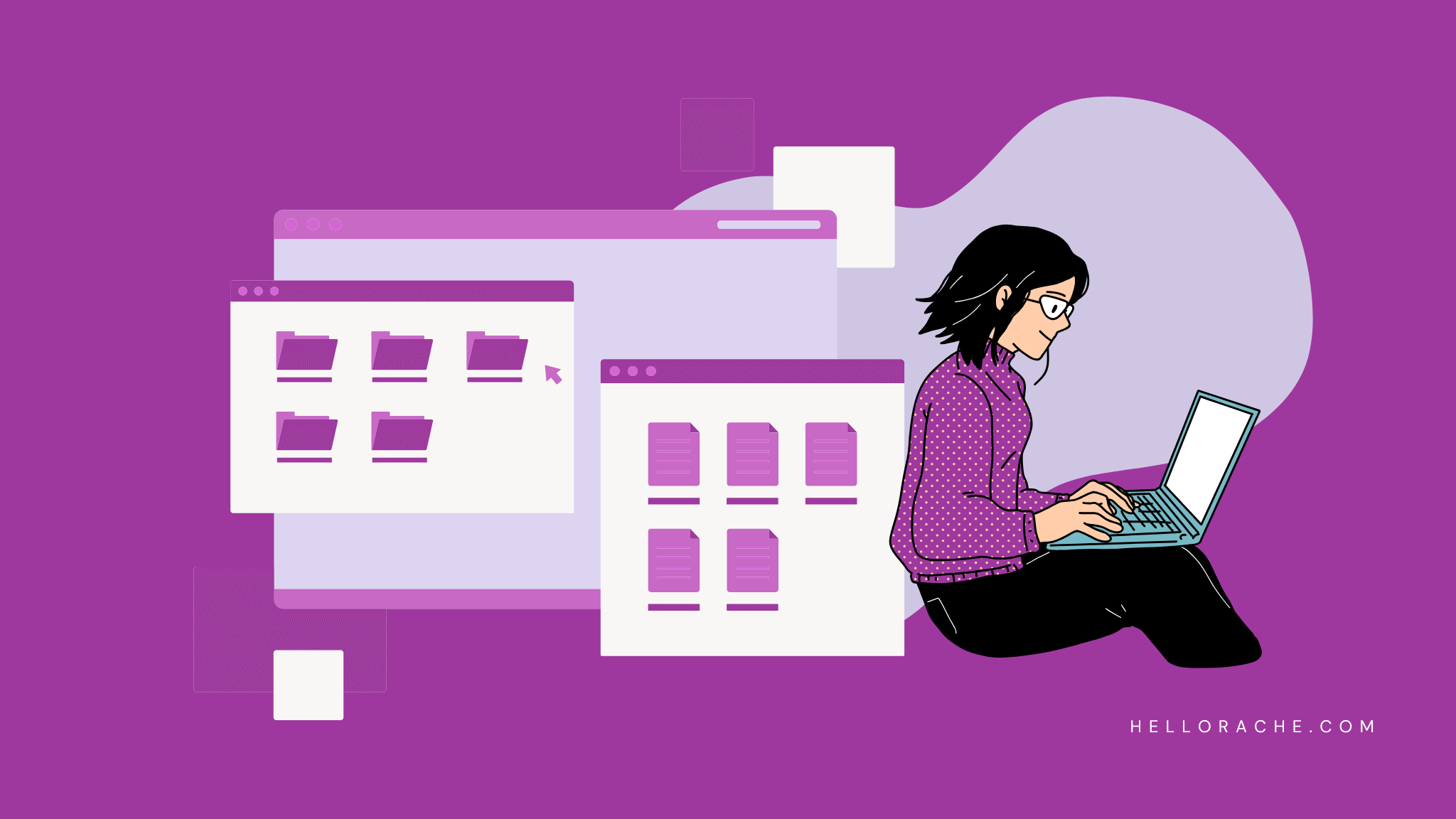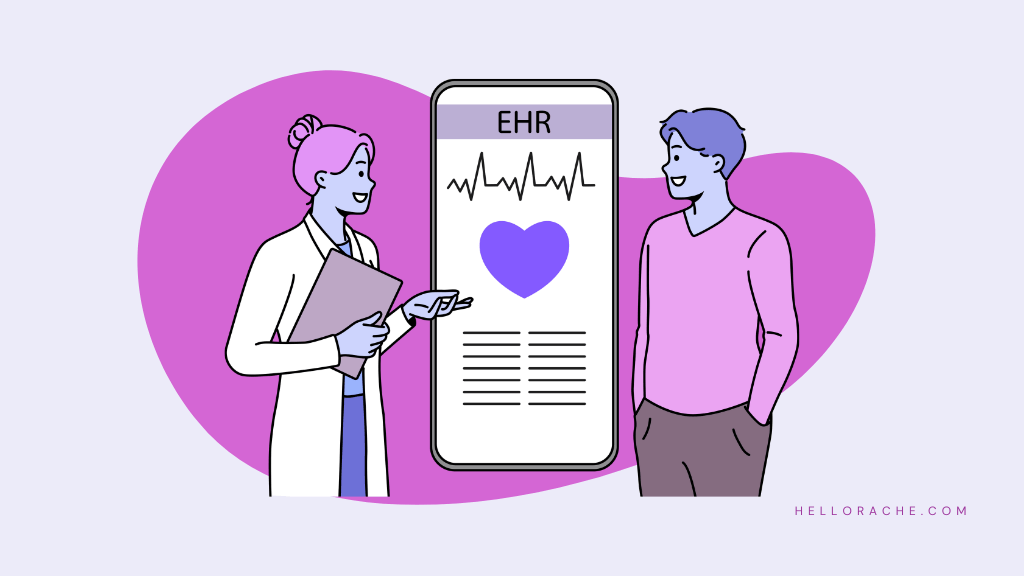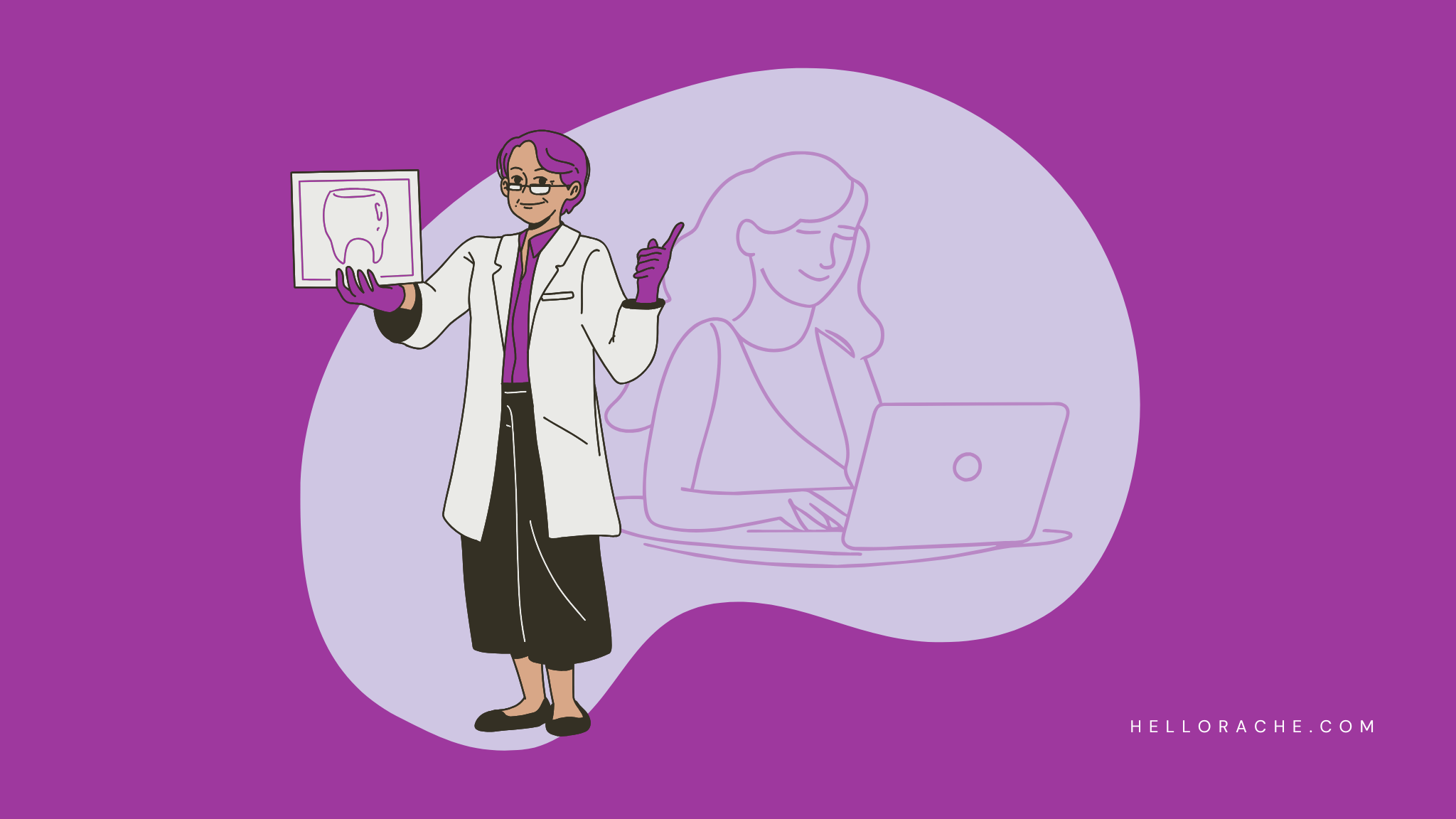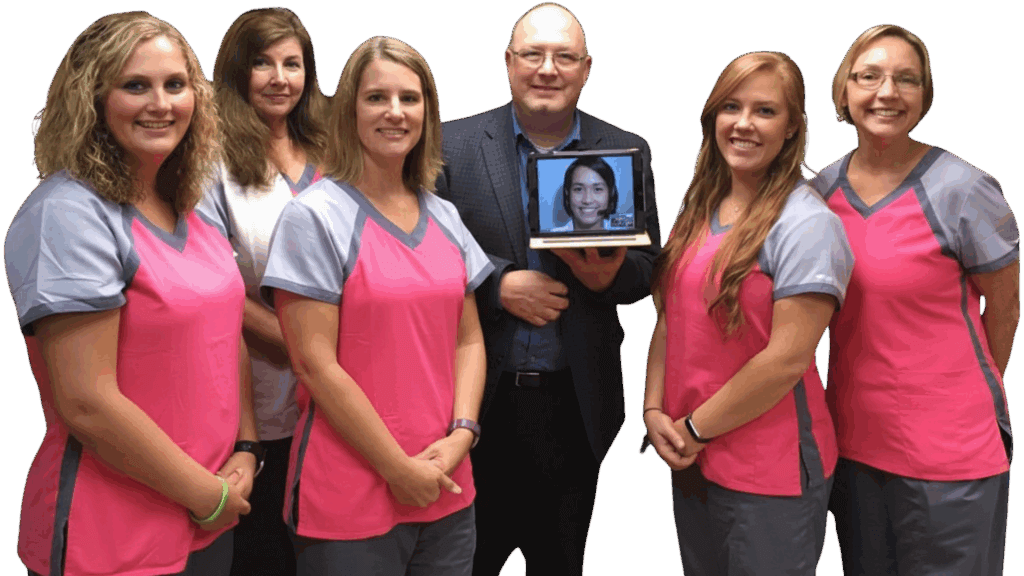Medical practices are facing more and more challenges as the capabilities of healthcare grow, and patient expectations become higher.
While this provides the promise of greater patient care, it also has a massive impact on the workday of doctors and any other staff working in a medical practice or office.
Thankfully, help is at hand in the form of virtual receptionists who can ease the strain of bureaucracy in modern healthcare and allow the staff at your practice to concentrate on those crucial areas that need the most attention.
But, what exactly is a virtual receptionist? What are their responsibilities? And how can they help your practice?
This article will discuss everything you need to know about virtual medical receptionists, including what they are, what they do, how they’ll benefit your medical practice, and more.
What is a virtual medical receptionist?
Cost-effective and easy to implement into your practice, a virtual medical receptionist is a remote worker who is able to operate as your practice’s first point of contact. They are “virtual” front desk workers at doctors’ offices, hospitals, clinics, and other healthcare facilities.
Even though they’re remote workers, their connection with practices is seamless, thanks to the development of technology that allows communication over long distances.
Hire a virtual medical receptionist from Hello Rache in a few easy steps to help your practice save time and money.
Where do medical receptionists work?
Medical receptionists work at all types of patient-facing facilities, such as community clinics, hospitals, medical offices, dentist’s offices, laboratories, and more.
According to the Bureau of Labor Statistics (BLS), medical receptionists are most often employed in physicians’ offices, general medical and surgical hospitals, dentist’s offices, other healthcare practitioners, and outpatient care centers.
This means that medical receptionists can work in quieter locations, such as outpost clinics, or in fast-paced locations, such as emergency care.
What are the job duties of virtual medical receptionists?
Undertaking all the tasks associated with an in-house receptionist, a virtual medical receptionist will handle incoming calls, arrange and confirm appointments, carry out verifications of medical insurance, deal with prescription refills, make plans for patient referrals, and most importantly, perform all duties within HIPAA regulations.
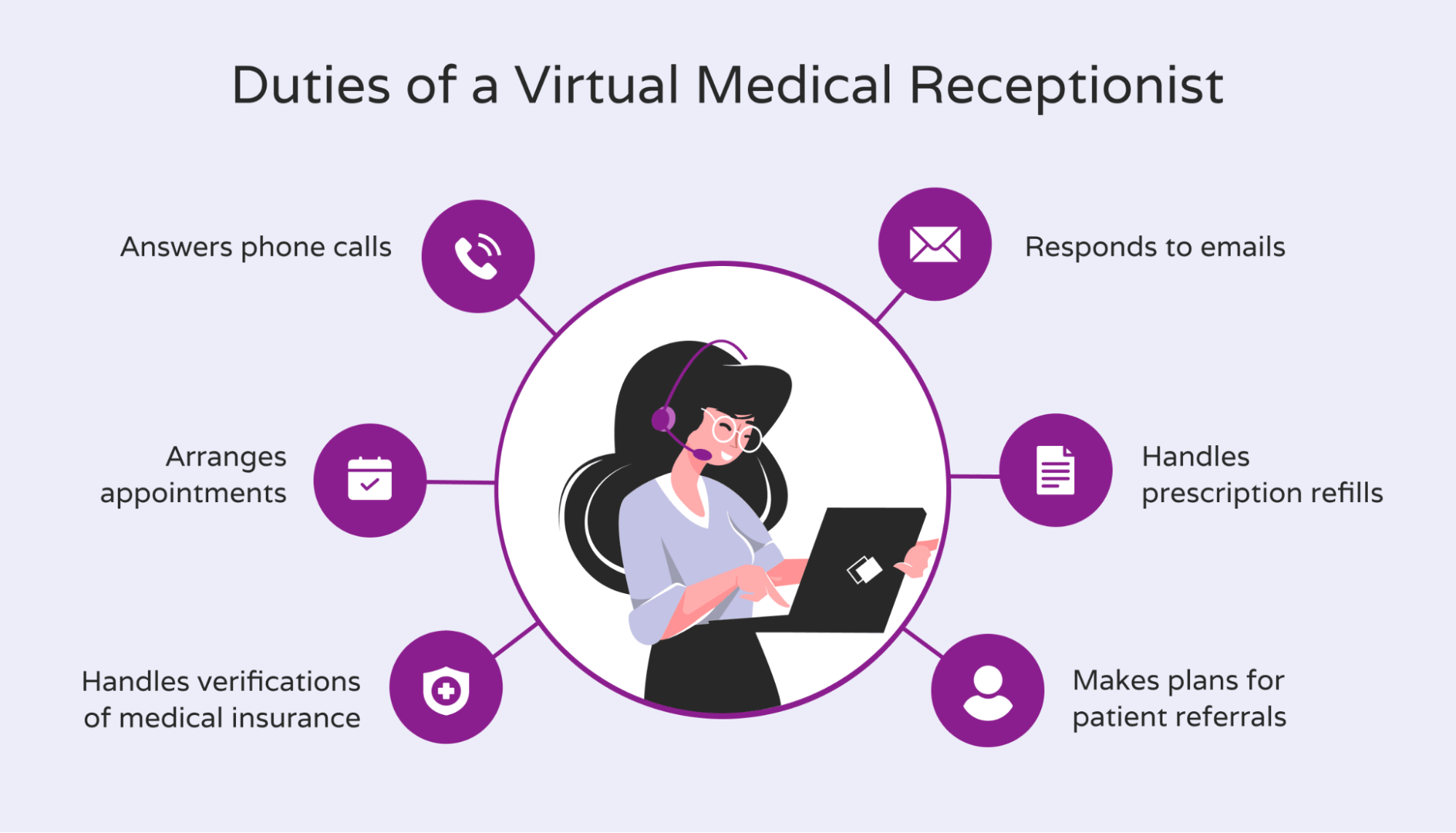
By utilizing Voice Over Internet Protocol (VOIP) software, such as 8×8, Grasshopper, or CallHippo, virtual medical receptionists can make and receive phone calls from local area codes (such as the practice’s location) through their computer.
Patients will be instantly connected with the virtual receptionist and receive the same level of care as if they were dealing with a receptionist who was physically in your practice.
Virtual medical receptionists, therefore, are a highly effective method of communication both internally and externally.
Now that we know which duties virtual medical receptionists can perform, what are the benefits of bringing in a virtual receptionist?
The benefits of hiring a virtual medical receptionist
The basic concept of a virtual receptionist is a highly alluring prospect for any medical practice that wants to push its capabilities a little bit further.
Here are the top five benefits that your practice could expect to reap from such a setup.
1. Free up time to spend with patients
One of the main problems that doctors face is not being able to spend enough time with their patients.
Medical problems can be highly complex affairs, but when a doctor is struggling with poor backup provided by an inefficient phone system, every single appointment in their schedule needs to be reduced in length to ensure every patient gets seen.
Not only does the patient get the short end of the stick in this scenario, but the doctor is also left frustrated as they’re unable to work to their full ability.
However, with a virtual receptionist in place, you’ll discover that the phone system becomes more efficient, and there’s less need for the administrative workload to be spread around the practice. As a result, doctors are less rushed and can give their full attention to patients.
This means that clients will be more likely to leave positive reviews. In December of 2021, there were 244 million reviews on Yelp, of which 18% were for home and local services (including medical practices).
Since many people rely on reviews – especially when it comes to important services that could impact their health – it’s important that yours are positive.
Providing great experiences for clients is a sure way to build positive reviews, enhance your practice’s reputation, gain referrals and acquire a higher level of authority in your industry.
2. High levels of customer care and service
If your patients suffer bad experiences at your practice, then you will soon find that they stop coming back. Instead, they will look into visiting practices that are praised for prizing their patients’ needs highly and above anything else.
And sometimes, this can be caused by something as simple as a lack of care demonstrated when arranging appointments, unanswered calls, or a general sense of chaos at a badly run practice.
According to a 2020 survey by Statista, 60% of customers were more likely to return to a company when it offered good customer service.
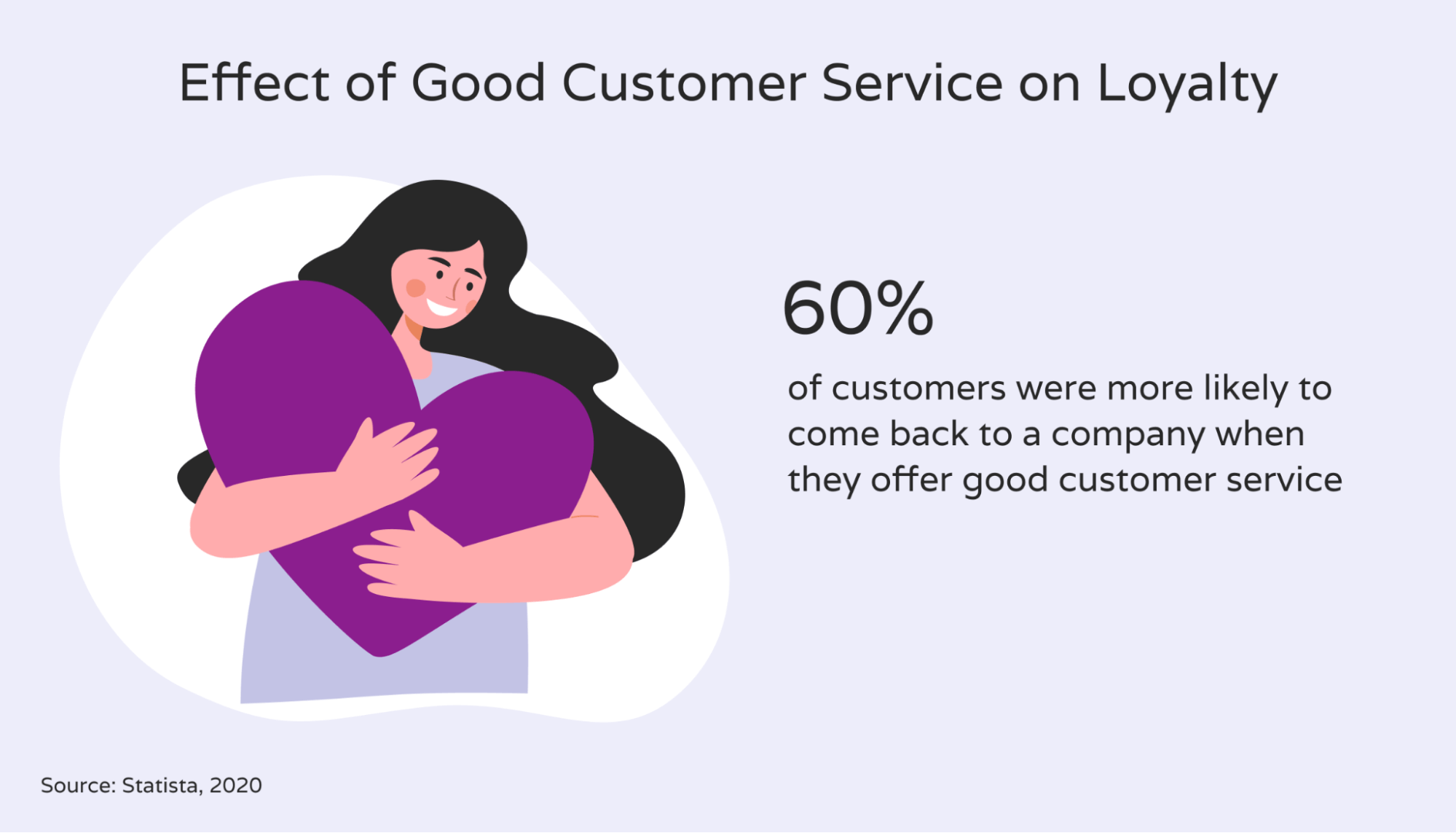
Virtual receptionists help provide excellent customer service by handling calls effectively, helping patients book appointments, aiding in prescription refills, and more.
Additionally, they are closely monitored, and their performance is regularly evaluated and scored.
This helps to provide practices with the ability to understand the level of quality being brought into their workplace and has the added bonus of giving virtual receptionists a quantitative objective to work toward.
This can only help to improve your practice’s reputation for fantastic service as well as develop the customer service skills of your virtual medical receptionist.
3. No need for an answering service
Many practices rely on an answering service to deal with customer queries instead of an actual receptionist at the front desk.
While this ensures patients are able to, at the very least, report issues, the reality is that many patients are prone to hanging up when they hear the cold, emotionless answering service message kick in.
This certainly doesn’t do your practice or the patient any favors, as clients could simply decide never to call back or return to your practice. But with a virtual receptionist in place, you can provide a more engaging form of communication to keep your patients satisfied.
And it’s also important to remember that you’re not limited to having just one virtual receptionist. You can have as many as you like.
4. More cost-effective
For practices that want to be cost-effective, staffing can be a major area of concern. Naturally, there’s the issue of salaries, but it’s also important to remember there are equipment costs and unseen costs such as wear and tear.
Virtual receptionists, however, help practices neatly sidestep these unproductive costs due to their remote abilities.
By taking up absolutely no physical presence in your practice, virtual receptionists are a highly cost-effective solution when it comes to dealing with your patients’ needs as well as the needs of your practice as a whole.
Virtual receptionists are responsible for their own equipment and don’t require any additional benefits, such as a 401(k), like an office-based receptionist does.
We’ll go into detail about the differences in the costs of hiring an office-based medical receptionist and a virtual medical receptionist later in this article.
5. Reduce the Admin Workload
Running a medical practice is not a simple business, and with the rapid increase of new statutes and procedures, the paperwork involved is becoming a real nightmare.
In-house admin staff are finding that more and more of their time is being taken up with menial tasks that provide little value for the practice and its patients.
The presence of a fully trained virtual receptionist means that your admin staff have the opportunity to spend less time on mundane tasks and instead have the time and energy to be hyper-focused on more pressing matters that could benefit or harm your business.
This ever-present backup solution for admin allows better service to be provided by your practice and reduces the stress on your in-house staff, which can easily lead to frustration and mistakes.
Additionally, in-house staff members will have more time to learn and improve their skills, resulting in happier and more fulfilled staff members and, consequently, lower turnover rates.
How much do medical receptionists earn?
On average, office-based medical receptionists earn $34,517 per year or $14,95 per hour.
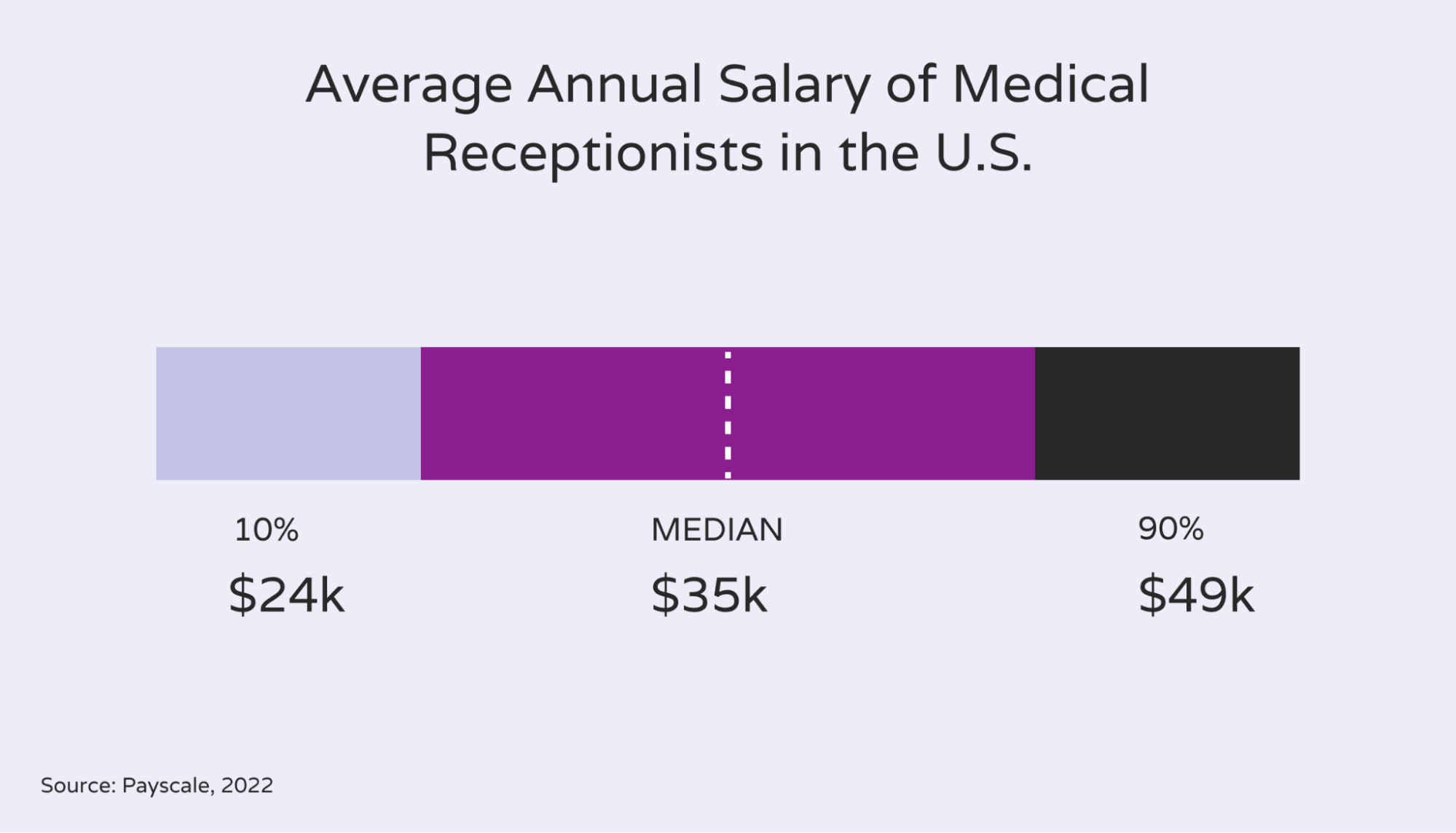
However, their salaries depend on several different factors, including years of experience, skill set, and location.
Years of experience
Your receptionist’s years of experience can either bring their salary up or down. For example, experienced medical receptionists with 20+ years of experience can earn around $2.54 more per hour.
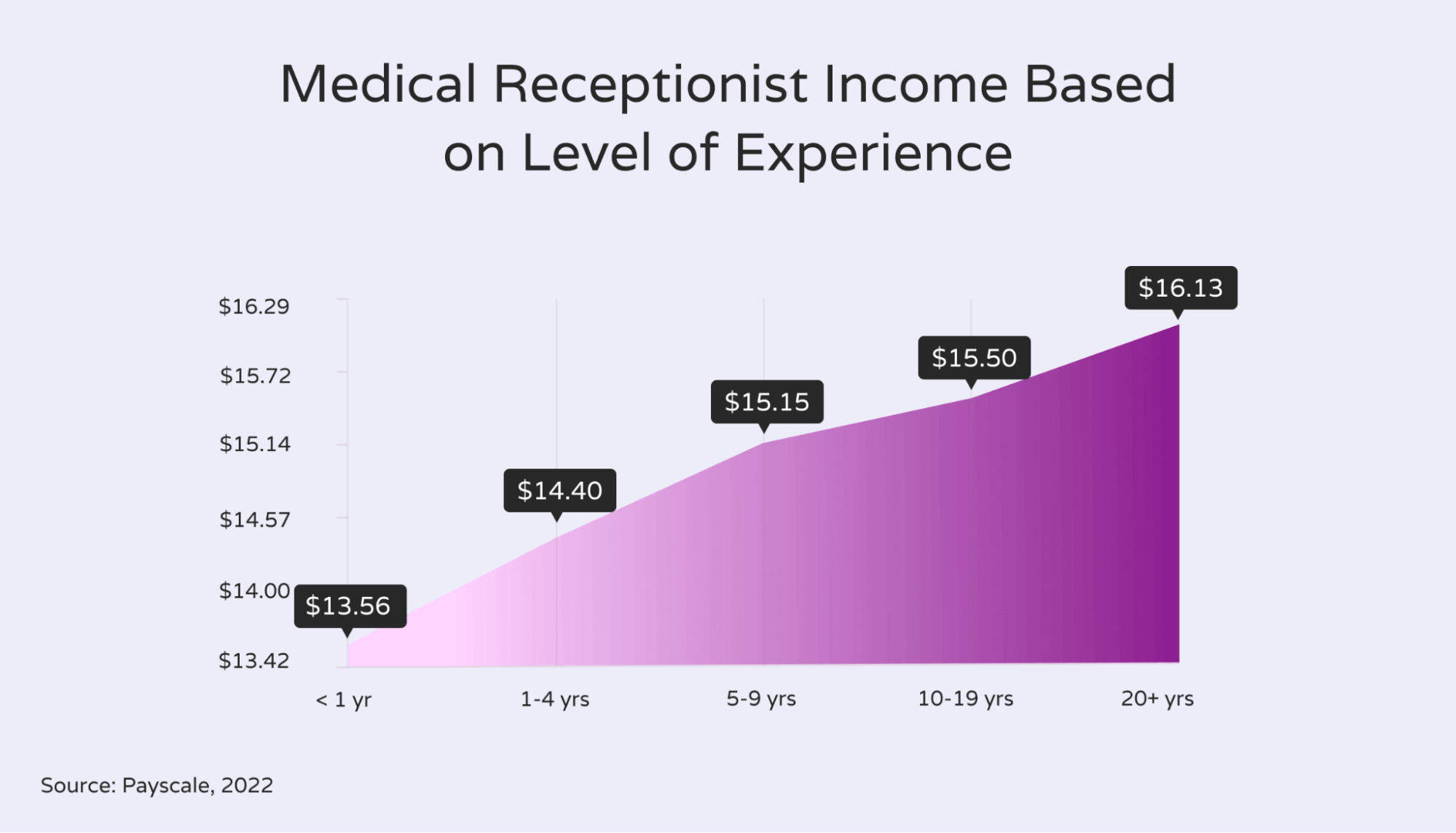
Though this may not seem like much, it is. If you do the math, this equates to over $20 more per day, close to $450 more per month, and over $5,000 more per year.
Skill set
Different skill sets can also have an impact on medical receptionists’ salaries. Here are some of the top skills that bring up a receptionist’s hourly wage:
- Patient counseling can increase their salary by 8%
- Office administration can increase their salary by 3%
- Medical coding can increase their salary by 2%
Location
The location of your practice greatly impacts how much you’ll need to pay an office-based medical receptionist.
Some of the highest-paying cities for medical receptionists in the U.S. include:
- New York, NY: $18.86 per hour or $43,884 per year
- Tacoma, WA: $18.50 per hour or $43,053 per year
- Brooklyn, NY: $18.00 per hour or $41,884 per year
- Bronx, NY: $17.52 per hour or $40,773 per year
- Louisville, KY: $15.41 per hour or $35,859 per year
- Tampa, FL: $15.31 per hour or $35,629 per year
- Las Vegas, NV: $15.02 per hour or $34,945 per year
On top of salary, you’ll need to keep other common health benefits for medical receptionists in mind. These include benefits such as:
- 401(k)
- Dental insurance
- Disability insurance
- Employee discount
- Free parking
- Health insurance
- Health savings account
- Life insurance
- Opportunities for advancement
- Paid time off
- Parental leave
- Retirement plan
- Vision insurance
- Wellness program
- And more
All these additional costs could add up to a hefty yearly fee that you’ll need to pay for as long as the receptionist is in your employment.
By hiring a virtual medical receptionist from Hello Rache, you’ll be paying a flat fee of $9.50 per hour, and you won’t have to sign a contract or worry about any other additional costs. You’ll also be able to choose the person you want to work with and cancel anytime.
Top skills to look for when hiring a virtual medical receptionist
Here are some of the top interpersonal and hard skills that virtual medical receptionists need.
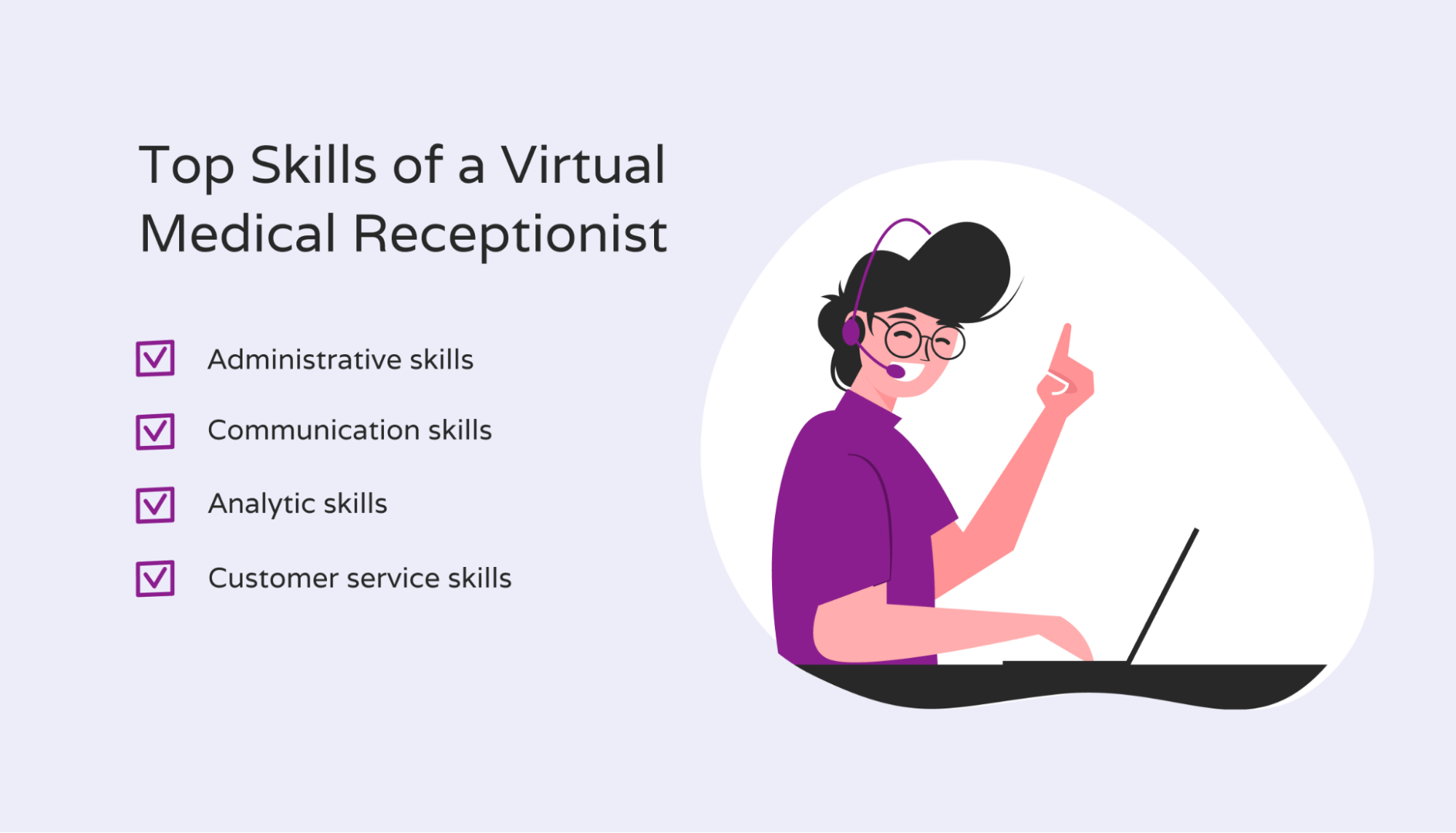
Administrative skills
Virtual receptionists need to have excellent administrative skills so that they can take time-consuming, low-priority tasks off your in-house administrative staff’s hands. This way, your business productivity will increase, and you’ll enjoy smoother and unrushed work processes.
For your receptionist to be able to handle administrative tasks effectively, they need to be well organized. This way, they can handle multiple tasks simultaneously, such as keeping track of schedules and medical data, admitting patients, and taking and making phone calls – all while maintaining order.
They also need to be able to prioritize tasks to make sure that more significant and crucial matters are handled first.
Communication skills
Since reception is a people-oriented job, communication skills are a must. Medical receptionists who can communicate well will make clients and staff members feel more at ease and comfortable asking questions, making requests, or expressing their concerns.
However, keep in mind that communication skills refer to verbal and written communication since virtual receptionists will communicate over the phone as well as via email.
As such, having great writing abilities and grammar knowledge will make their communication skills so much stronger.
Analytic skills
It’s imperative for virtual receptionists to think fast whenever an issue arises. Sometimes, emergencies will arise where receptionists need to deconstruct the information into smaller categories so that they can either solve one problem or answer one query at a time.
As a result, they may sometimes have to work under pressure, depending on the type of facility they’re working at (for example, emergency care). This skill also comes in handy when dealing with angry or worried patients.
Regardless of the situation or type of facility, an expert receptionist will stay calm and work effectively in high-pressure situations.
Customer service skills
Along with communication skills, customer service skills play a vital role in keeping clients satisfied and loyal to your practice.
Your virtual receptionist should know how to treat patients well and appropriately throughout their entire customer journey – all the way from scheduling their appointments, handling their billing, and keeping them up to date with news of your practice.
Doing so will help you build an excellent brand reputation and guarantee that customers stay loyal for years to come.
What qualifications should a medical receptionist have?
Most medical receptionists need at least the following qualifications to get into different types of medical practices.
- High school diploma or equivalent.
- At least one year of experience working as a receptionist, administrative assistant, or similar role.
- One or more certificates relating to the medical field (so that they’re aware of medical processes and procedures).
- They need to be familiar with medical or dental terminology.
Keep in mind that some fast-paced and emergency medical facilities may require additional qualifications. Your best bet would be to look at the job requirements for your practice to determine which qualifications your candidates need.
Hiring a virtual medical receptionist is a no-brainer
It’s not really a question of why your practice needs a virtual medical receptionist. It’s more a case of why doesn’t your practice have one already?
With a huge number of advantages that can benefit your doctors, patients, and clerical staff, a virtual medical receptionist can make a wonderful addition to your practice by bringing freedom and flexibility to a workplace that can be highly stressful and busy at the best of times.
Book a call to find your perfect virtual receptionist at Hello Rache.

Discover what Hello Rache can do for you and your practice
Tell us more & we will contact you within 24 hours
SCHEDULE A CONSULTATION
